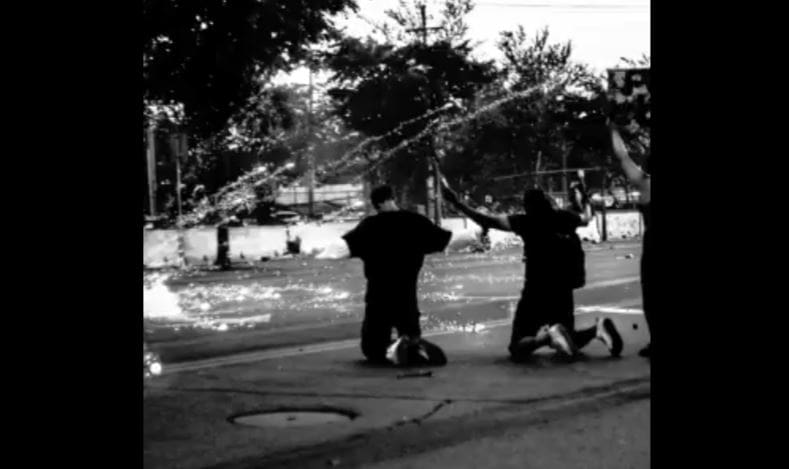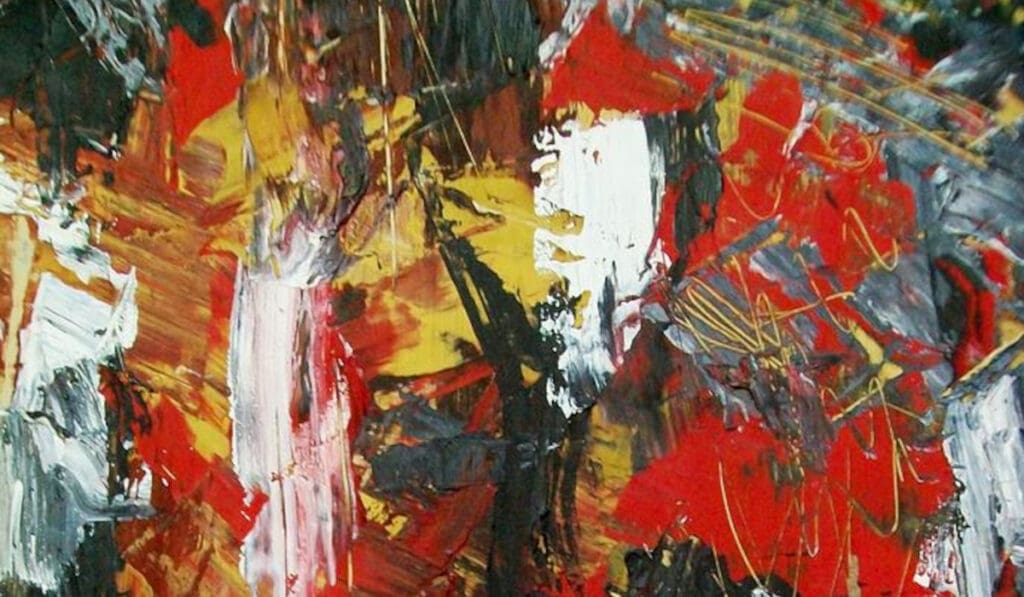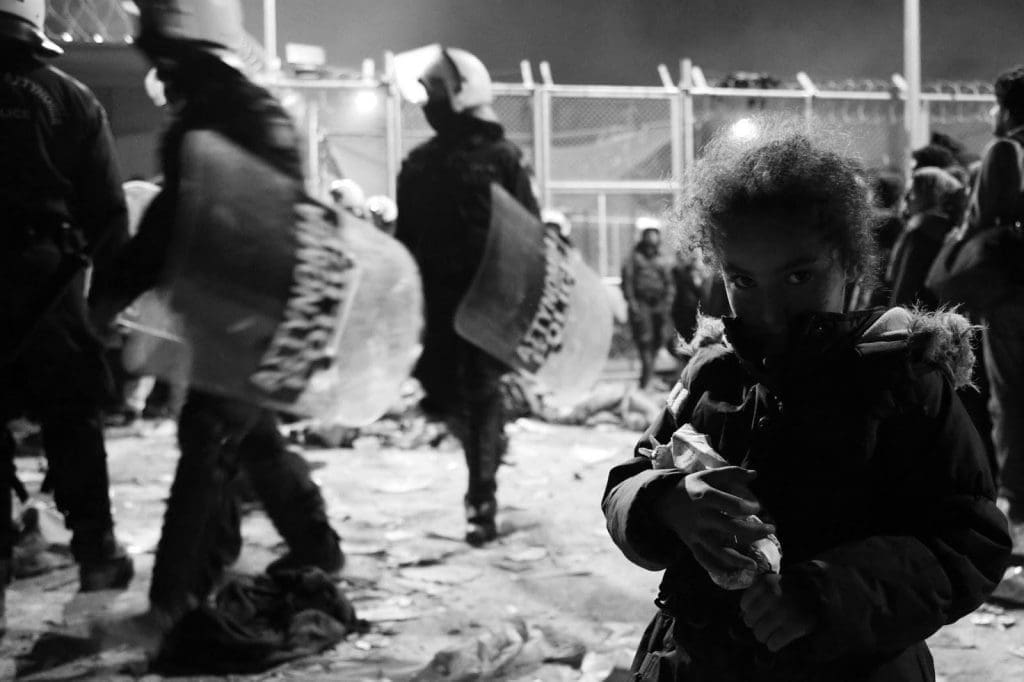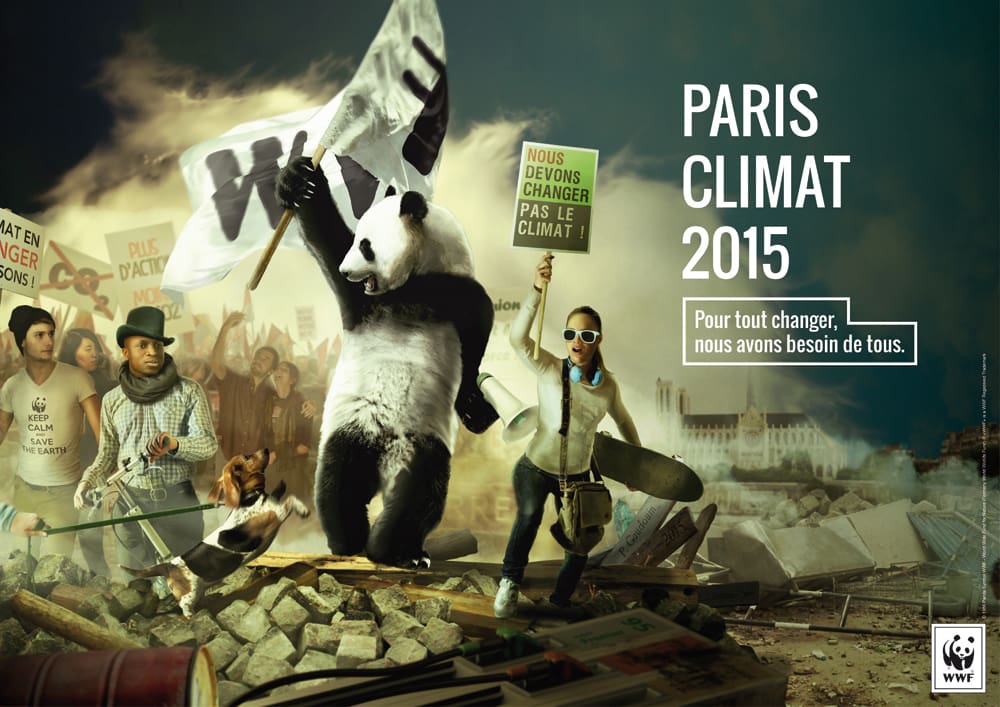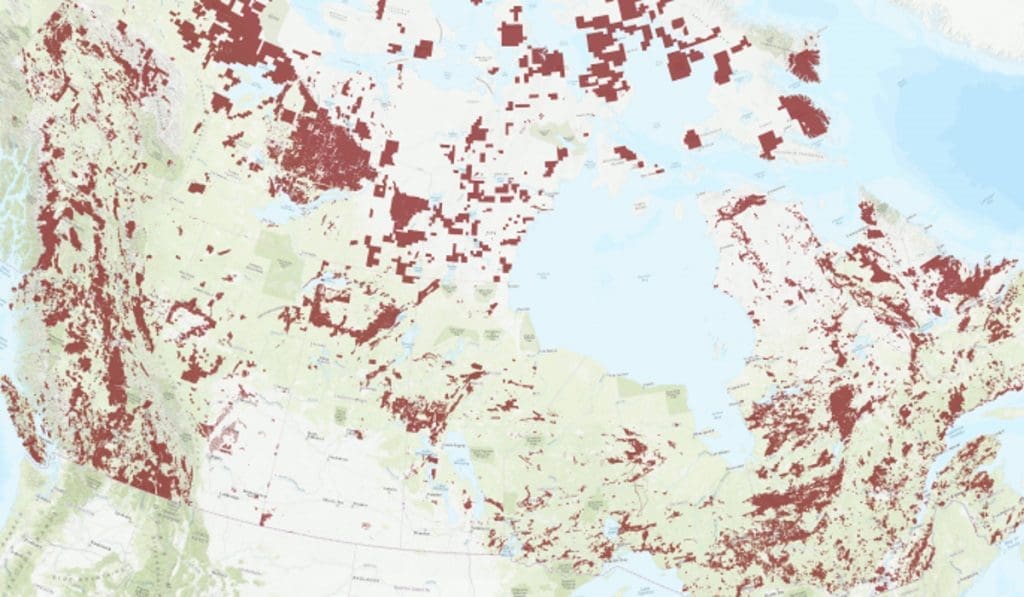Transcribed from the 19 July 2020 episode of This is Hell! Radio (Chicago) and printed with permission. Edited for space and readability. Listen to the whole interview:
Anarchism is contempt for subordination and dominance. It’s not contempt for rules. We’ll still have traffic signals and stuff like that. It’s a contempt for the enforcement of punitive disciplinary regulations that in fact disallow the proliferation of life and life-chances—that’s authority.
Chuck Mertz: Blackness radicalizes radicalization, and everything blackness touches. So what happens when blackness comes into contact with anarchy? Here to help us understand blackness, anarchy, and what they can and do mean for one another, returning to This is Hell! is Marquis Bey, author of Anarchoblackness: Notes Toward a Black Anarchism. Marquis is assistant professor of African-American literature and English at Northwestern University. They were on our show last year to discuss their book Them Goon Rules: Fugitive Essays on Radical Black Feminism.
Welcome back to This is Hell!, Marquis.
Marquis Bey: Thank you for having me back.
CM: You quote Mahatma Gandhi in his Banaras University speech given on February 4, 1916, saying: “I myself am an anarchist, but of another type.”
Not everyone listening right now knows what anarchy is, so I think this is a good starting place for people to understand what the popular definition and the political understanding of anarchism is.
What is the kind of anarchist that Gandhi was not? That implies there are multiple definitions. Before we even get to Black anarchy, what is the difference between the anarchist Gandhi was not, and the kind he was claiming to be?
MB: This is going to require a bit of an extended answer. Generally speaking, anarchism gets a bad rap. It’s often equated with, and used as definitional of, a negatively-connoted chaos. You might hear someone say, “Things descended into anarchy,” which is meant to be an undesirable, chaotic, bad state of affairs. But anarchists understand anarchism as a political, interpersonal, even societal mode of existing in the world with others.
We mention Gandhi—also someone like Tolstoy identified an affiliation with anarchism. Not to mention the classical anarchists in the canon (which I’ll get to briefly). Anarchism gained a certain prominence as an identifiable position that people held organizationally, in response to theocracies of the eighteenth century. They were searching and agitating for an alternative to such oppressive and disciplinary governmental and societal control. Anarchism in its fundamental sense is best characterized (by a thinker named Nathan Jun, who I’m paraphrasing here) as a pervasive condemnation of, opposition to, or subversion of any circumscribed coercive authority and its tools, which is then coupled with the affirmation of a radical conception of freedom of equality.
I feel the need to explain this last part quickly, because too often there is an air of conceit, a haughtiness that anarchists or leftists more generally take on. “Oh, we’re fighting for freedom and equality so we’re the good people.” We really need to be clear about these terms, because the very people who have pillaged and enslaved and decimated the land and peoples of this country and other countries also said they were fighting for freedom and equality. So let’s get precise with our terms.
Anarchism is ultimately in service of freedom and equality—and the subversion of power and authority and coercion. Black feminist thinker Saidiya Hartman refers to it as the kind of freedom we might actually be afraid of, a radical conception of free-ness that entails the abolition of all instances of authority, hierarchy, and coercion. This includes not only of the obviously bad things, but also carceral spaces and logics like the gender binary, or the idea of property that is used to exploit people and land, or various modes of taxonomizing ourselves and others which disallow subjective self-determination. So I mean freedom and free-ness the way Jennifer Nash describes black feminism: a project of anti-captivity. A mode of existence entirely predicated on non-coercion.
To get back to the classic conception of anarchism (before I even get into the nuanced alteration that black anarchism makes to it), the clearest way to put it is that anarchism, with all its various strains, typically consists of a disdain for authority, a desire to dismantle the state, and an emphasis on direct participation. In terms of authority, the popular anarchist phrase that sums it up quite nicely is “No Gods, No Masters.” It’s not about an individualized religious belief, but rather a contempt for subordination and dominance. It’s not a contempt for rules. We’ll still have traffic signals and stuff like that. It’s a contempt for the enforcement of punitive disciplinary regulations that in fact disallow the proliferation of life and life-chances—that’s authority.
In terms of the state, one way to understand it is as a centralized, top-down organization that maintains a monopoly on the legitimate and legitimized use of violence, and then grants itself the sole power of legislating law and violence that everyone must obey—or rather, everyone who is not themselves a direct agent of the state. It guarantees the persistence of existing social relationships which are oppressive and condemnatory of modes of living that are not sanctioned by the state.
Another way of understanding the state is that it’s a relation, a way of interacting with others and oneself. What I mean by this is that how we exist in relation to others might in fact be doing the work of the state. You might be doing the work of coercion and authoritative regulation and hierarchy. For example, those who police others’ genders and enact cis-normative and transphobic views are agents of the state and relate to others on gendered state grounds. Those who inform the police of purportedly criminal activity are agents of the state. As the people I grew up around in Philly are very fond of saying, “Snitches get stitches.” That is a way of staunchly refusing to let state relations enter into one’s space.
As for direct participation: it’s simply that those to whom a particular ethic or rule applies ought to have direct input in the creation or implementation of that ethic or rule. It’s a refusal of representative forms of government, precisely because representatives in fact deprive participation from people and instantiate it in someone else. Direct participation is a confirmation of one’s ability to have a say in things, alongside people with whom they are in community.
If anarchism is a radical overthrowing of the very state that has dictated what is possible for us, then it requires that we think about some seemingly impossible things. Anarchism is irreverence towards what is “real” or “possible.” That is what is at stake. We have to become Unreal and Impossible if we are to actualize an anarchist world.
Anarchism is not just a critique of oppressive society—though it very much is that—it’s combined with an idea of a world of freedom. Anarchists have a specific methodology of social change in which the end to be fought for is already visible in the means we use.
So yes, there’s that popular conception of anarchism as radical disorder and disorganization. Anarchists of another type, who Gandhi might have been speaking to, have a different way of conceptualizing anarchism via a certain kind of productive or generative unruliness, wherein the rules or the systems and regimes that govern us are in fact oppressive and violent, so unruliness is in fact a kind of salvific way of inhabiting the world.
CM: How much do we recognize the state’s participation in our lives and in our relations? Is that a step toward understanding political anarchy, when you start considering the way that the state changes the way that we relate with everything? Do we recognize how much the state is involved in our lives?
MB: I don’t think we do. Even me, I don’t think I realize it to its full extent. Think about the ways we relate to others—say we’re in a relationship with someone, or even just a friendship, and we use a phrase like, “I’m investing my time” in this friendship: that is capitalist, neoliberal language that we’re using. We’re thinking of our relationship with someone as a transactional exchange that we then need a return on our investment for. This is incredibly disgusting to me, if I can say that. Because it means that we understand people in economic and economized terms rather than as sentient people with various desires. We can think about our relationships with people on grounds that are not transactional and extractive at base, and try to see them as more loving, as more accountable, as more transformational.
The ease with which we use that kind of language (“investing” time in relationship) seems to indicate that we still have not considered just how pervasive capitalism and the state have been in even our most intimate moments. It’s not simply an institution on high doling out sentences, but rather it’s an intimate thing that we’ve absorbed—by design—from the state and capitalism. That is something we need to radically undo, and reconsider, and reconfigure.
CM: Each of the chapters in your book carries the prefix “Un-” and you say that your writing’s “commitment to anarchism stretches to subjective, intersubjective, discursive, systemic, and historical realms via a fundamental commitment to being and becoming unraced, ungendered, unclassed, unruled, and unbound.” The chapters include “Unblack,” “Ungovernable,” “Unpropertied,” “Uncouth,” “Unhinged,” and “Uncontrolled.”
Are these all states we have to attain individually within our own worldview? Or are these horizons for us all to aim for collectively? Or both?
MB: It’s both—it’s something that we, ourselves, individually (I’m very iffy on that term and on the notion of individuation, but we can get into that later), need to undo for ourselves. And that micro-political movement will have inroads in macro-political ways. The things that we do for ourselves and how we reconfigure ourselves and our relation to things will inevitably have effects on larger systems.
I love the term you used, horizon. It is very much a horizon of interrogation, of questioning, of reconfiguration and recalibrating. What we understand as possible for ourselves has already been touched and tainted by capitalism and the state. So we also have to throw into question our presumed ability to think of alternative possibilities, because those possibilities are themselves ensnared in the horizon of possibility that capitalism and the state have already fixed into place.
So the prefix of “Un-” that is part of each chapter title is a way to try to think about how we need to radically overthrow the very things we know to be real, to exist. There is the accusation that anarchism or something like abolition is “unrealistic.” And actually that’s quite true. Because realism and realisticness are the parameters; the scope of things is predicated on the limits circumscribed by capitalism and the state. We really need to undo the very notion of ourselves, the very notion of what is real, and what is possible. This is almost an impossible task. It really is. I don’t presume that this is easy. But it is what’s necessary if we are to get toward this anarchic world.
If anarchism is a radical overthrowing of the very state that has dictated what is possible for us, then it requires that we think about some seemingly impossible things. That’s going to be very difficult, because it has to occur at the level of the individual, the level of the subjective, the level of the psyche, even—the level of the ideological and the imaginary. All of those things have to be subject to an extreme interrogation, because in many ways we can’t trust them. But anarchism is irreverence towards what is “real” or “possible.” That is what is at stake. We have to become Unreal and Impossible if we are to actualize what might be called an anarchist world.
CM: You write, “Blackness radicalizes everything that it comes in contact with. Anarchoblackness is a black, queer, feminist anarchism that disorders the various mechanisms that hierarchize, circumscribe, and do violence to the moments of life on the outskirts of order. It is an unfettered and ungoverned sociality—an anti-colonial sensibility. Anarchoblackness, and black anarchism more broadly, is an anarchism of another type, to purloin Gandhi, that recognizes its intimacy with anarchism as conventionally understood, but that revises anarchism, anarchizes anarchism, remixes and samples anarchism, to produce something distinct but very much indebted.”
What do you mean by “anarchizing anarchism?” Does blackness give white anarchism, if you will, the radicalism it needs? Does white politics need the radicalization of blackness? Is that what is missing from, say, what we see as establishment liberalism within the Democratic Party?
MB: Yeah. The very short answer is yes. But I have another long, rambling answer if you’ll indulge me. I want to be very clear: black anarchism is not just about black people who are anarchists. While I do think it’s quite important to know that people like Lucy Parsons, Lorenzo Ervin, the Black Rose Anarchist Federation, Zoé Samudzi and William C. Anderson exist and are demonstrably and avowedly black and anarchist, simply naming them as anarchists who are black is a very basic move to me, one I’m quite uninterested in. Not because it’s unworthy, but because it’s been done before and has been most of what’s been done. It’s that and fingerpointing at classical anarchists like Max Stirner and Kropotkin, Bakunin, and Emma Goldman who forget about black people and race. Okay, cool—I’m not surprised by this. Why are you surprised? That’s not what I’m doing.
Bakunin has said that if there is a state, there must be domination of one class by another, and necessarily from this, slavery. So the state and slavery go hand-in-hand, he says. Overlooked here is how the history of enslavement of people of color, and specifically black people or people of African descent, in the Western world is the haunting specter of this claim. The condition of the slave, which is on one plane the condition of blackness, is a relationship of a people to the state. So anarchism and its anti-statism must reckon with how blackness might quintessentialize the condition of being subject to enslavement. To abolish slavery necessitates the liberation of blackness, making anarchism an emancipatory project that has at its foundation a grappling with blackness—which is then to say black anarchism.
Gender as binaristically construed rests at the heart of society’s structure. The gender binary is regulated by law, institution, religion, medicine, and various other social and societal authorities—so a radical departure from the state, then, necessitates a radical departure from compulsorily binary genders.
But this is not the entirety of black anarchism, at least to me. It’s not the move that I’m interested in making. I care little about pointing out the racism or white solipsism of classical anarchists. My interest is in how black anarchism ushers in a fundamental qualitative shift that essentially anarchizes anarchism. I do that through engagement with black feminism and queer and trans feminisms.
Black feminism as a part of black anarchism is a necessary engagement with anarchafeminism. Historically, those who are called anarchafeminists have insisted on the gendered nature of capitalism and power. They saw that even though male anarchists would concede that patriarchy is linked to class, there also needed to be a fundamental understanding that experiences under capitalism are differentiated and inflected by gender. Traditionally, anarchism relegated revolutionary anarchic work to the public sphere, as if the public, waged workplace was the only place where work and labor was being done, and from which people had to be liberated. So anarchafeminists have insisted that the family and domestic sphere are also sites of valid anarchist conflict.
But of course there’s an elision here. The implicit assumption that all women occupy the unwaged domestic workplace fails to consider how black women in particular have a strange relationship to this simplistic differentiation between workplace and home life, because black women often work in other people’s homes, usually for white women. The task of anarchafeminism is not some misguided female empowerment-type feminism which would merely wish to replace men at the top one percent with cisgendered women. Anarchafeminism doesn’t mean female corporate power or a woman president. It means no corporate power, and no presidents.
I bring this to the black feminism of people like those of the Combahee River Collective and what they write in their famous black feminist statement of 1977. They don’t call themselves anarchists, but rather socialists. But I’m curious about how it seems like their socialism pushes someone like Marx, and essentially—via their black feminism—anarchizes Marx and socialism. If anarchists have held, pretty vociferously, that until all are free then no one is free, then we can note the express anarchism of the Combahee River Collective when they argued that if black women were free it would mean that everyone else would have to be free, since black women’s freedom necessitates the destruction of all the systems of oppression.
This means an honest manifestation of anarchist politics has to grapple with—and have as foundational—black feminism. As a quick nod, I should point out Saidiya Hartman’s recent book Wayward Lives, Beautiful Experiments, which discusses beautifully what she calls “the anarchy of colored girls,” further linking black women and black feminism to anarchism.
That’s the way that black feminism is linked to anarchafeminism, which is linked to black anarchism. In terms of queer and trans feminism, which is one of my other areas of expertise, I often turn to a group like the Whore Dyke Black Trans Feminist Network, who insist on what they call “dynamiting the gender binary” as a political practice. By exploding the sex and gender binary, we reject distinction between the naturalness of sex and the purported culturalness of gender. Black and trans feminist anarchism here does not abide such distinctions and insists on noting the externally imposed, coercive construction of sex and gender. The sex and gender binaries, then, are authoritative, coerced, hierarchized impositions that—in anarchist fashion—ought to be decimated.
How we’re gendered is a product of how the state and its various apparatuses seek to discipline and produce and coerce and hierarchize different desires, bodies, and comportments. There is a political and ethical interest in the question of gender which becomes anarchically pertinent when viewing it as not an unmediated natural phenomenon but a historical production that serves the interest of the state. So those anarchistically concerned with gender—and these people have been called “anarchist sex radicals”—argue that gender as binaristically construed rests at the heart of society’s structure. The gender binary is regulated by law, institution, religion, medicine, and various other social and societal authorities—so a radical departure from the state, then, necessitates a radical departure from compulsorily binary genders.
My conception of black anarchism necessitates that, in light of these anarchist sex radicals, one also bear a queer and trans relationship to sociality. The imposition of gender might be the chief executive officer of the state—so to deviate from and undermine the state requires a deviation and undermining of gender’s coercive regime. Black anarchism’s constitutive queerness and transness demands, then, that one bears what I would call a trans relationship to normativity, and specifically normative gender—which is not merely the clothes one wears or how one identifies or the inflection of one’s voice, but a relative mobilization of subjective gendered effects.
To express a trans relationship to gender normativity is to sociopolitically deploy one’s own gender as well as gendered sociality—the way that the social sphere is gendered and dictated via gender—in non-normative and subversive ways that bring about a different, perhaps even ungendered world (to use the language of Hortense Spillers). In the book, I corral all of this into the analytic of anarchoblackness.
CM: You write, “To follow and deviate from the beaten and unbeaten path of the history of blackness, a history that is always/already queer, always/already black feminist, and most fundamentally always/already trans and non-normative is to bring an archive of radicality that breaches all major confines of sociality and subjectivity.”
If black lives are always radicalized, if you will, what explains black conservatism—especially that of “law and order” black conservatives such as those discussed in the work of James Forman, Jr.? Or is that black conservatism also radicalized in a certain way?
MB: I need to be very precise with language here, and I’m inevitably going to piss some people off. Whatever, I’m kind of used to that. I would say that it is not that black lives are themselves always and already radicalized, but blackness and perhaps even black life is the thing that is always and already radicalized. I understand blackness—I’ve gotten in so much trouble with this before—not as an identitarian category. It is not a thing that one possesses and is, without any further doing, but rather it’s linked to a certain notion of an anti-captivity project, or what Fred Moten would call fugitivity, or a sensorium that denotes a certain relation to inhabiting the world, a certain relation to normativity and hegemony. That’s how I understand blackness: not as a thing that one possesses but rather a different mood of inhabiting the world.
If the state is the primary cause of violence, and creates the very conditions that force people to act in ways the state deems violent, it might stand to reason that an anarchist elimination of the state would radically reduce crime, making it possible to engage in transformative justice, or community-run, compassionate, non-punitive forms of culpability and accountability and care.
Name your black conservative. Clarence Thomas—whoever—is in fact someone who is exhibiting a certain kind of whiteness. That person is doing whiteness, is doing the state’s work, is doing white supremacy’s work, irrespective of their phenotypic blackness. I’m uninterested in thinking simply. This is why the black anarchism project is less interested in black people who are anarchists but rather in the spirit, the way of thinking about a certain kind of irreverence towards normativity and hegemony—that’s how I’m understanding blackness.
The “blackness” of someone like Clarence Thomas is simply epidermal. He is—and other black conservatives like him are—for the most part exhibiting an immersion in whiteness. Whiteness is a pretty indiscriminate beast, and it claims anyone who is willing to take on that kind of worldview and work and perspective. Now this is controversial statement, and I’m quoting Fred Moten in his article “Black Op,” but the flipside of this is: if whiteness can claim anyone, that also means that blackness can claim anyone. Fred Moten said anyone who blackness claims—which is to say everyone—can claim blackness.
Blackness, then, is not about a certain skin color—which is, to me, incredibly empty as a political and politicized way of being. Rather, it’s a certain way to inhabit the world in non-normative and subversive oppositional ways. Short answer: black conservatives are not black—or are not doing blackness. I’ll put it that way. And I’m putting my cards on the table with that.
CM: You write, “Anarchoblackness expresses what might be understood as a black anarchism insofar as it designates gratuitous disorder that engenders the possibility of living unbounded by law, which is to say unbounded by violence and circumscription.”
To what extent is the problem with policing that law is, as you say here, about violence?
MB: The law, capitalism, the state is suffuse with violence. All these things are really predicated on having a monopoly on violence, and doling out and distributing violence.
The question of violence is one that comes up a lot, thinking about anarchism. One critique often made of anarchism is either that it, itself, is violent, or that it has no plan for violence and crime. But that critique already begins with a misstep and a gross oversight: the primary progenitor of violence is the state and its various legal and institutional sanctioned entities and traditions—namely, capitalism and its numerous detriments: the military, colonial and imperial conquest, environmental extraction, exploitation, privatized property, not to mention the criminal punishment system.
In terms of the state, in terms of the law, in terms of law enforcement—which is literally violent language: law enforcement—in terms of all that and its engendering violence, strictly as a governmental edifice, the state is suffuse with violence. It is generated out of and through the violence of bestowing poverty—poverty is in fact bestowed. It’s not simply a state that one finds oneself in, but an imposed status and circumstance. It leads to premature death, or the state-sanctioned death that abolitionists like Saidiya Hartman and Ruth Wilson Gilmore have noted, by privatizing property and land which has generated a massive houseless population, and exploitative lending and renting and buying practices which someone like Keeanga-Yamahtta Taylor outlined brilliantly in her book Race for Profit. Also the state, by literally having prisons and imprisoning people, commits various kinds of violence. This is not to mention the numerous policies that disallow the flourishing of life and the unhindered access to medical care and simple movement through the social terrain.
This is on a massive scale that far exceeds your average broken window or broken nose. Violence occupies every place, it seems to me, in party-governmental politics. It’s in the distribution of power, and power is enforced using violence. There is no power without it being enforced, and that enforcement is a certain kind of violence: armies, police forces, the delineation of borders, etcetera. This is the kind of violence that goes overlooked or is obviated in critiques of anarchism for being or not having a plan for violence.
There was a very telling news headline not too long ago that read something like, “Violence breaks out at university after vigil for student killed by police.” The violence occurs after the literal murder of a person? The police committed no violence, in this logic. It’s only when the instantiations of the state are damaged or critiqued or interrogated that “violence” happens. So what qualifies as violence is not the precipitating violence—the state-sanctioned police murder—but the response to that violence.
If the state is the primary cause of violence, and creates the very conditions that force people to act in ways the state deems violent, it might stand to reason that an anarchist elimination of the state—which is again an institution and system as well as a mode of relating to others and ourselves—would radically reduce what is considered crime, making it possible to engage in what abolitionists deem transformative justice, or community-run, compassionate, non-punitive forms of culpability and accountability and care.
I do want to be clear and say that the very topic of violence is incredibly thorny. I don’t have the intellectual capacity to get into all of the nuances, so I want to point folks to three different sources. The first is Judith Butler, who has a new book that just came out a few months ago called The Force of Nonviolence which makes the case—and persuasively so—for nonviolence as an organizing framework for activism and justice insofar as it stands the best chance to mitigate the pervasiveness of violence in the world. It’s not about simply being peaceful, whatever that means, but primarily about organizing ourselves around the question of how we might exist among each other less violently.
I might also name Angela Davis in this conversation, too. She just goes off in this interview that appears in a documentary called The Black Power Mixtape. She notes that to ask the Black Panther Party, or black people in general, whether they think violence is justified is absurd, because they are living in the midst of bestowed and imposed violence. In short, “How dare you?” Angela Davis asks. How dare you ask the black person living in the midst of terror and sanctioned murder and violation whether the violence being inflicted is justified? They were bred in violence. What choice was there to not enact what might be called violence? The reaction is not on the same level as the initial precipitating violence.
The person I’ll end with, in a kind of poetic flourish, is a nonbinary poet named Andrew Gibson, whose work is absolutely incredible. They have a line that simply says, “I believe there is such a thing as a nonviolent fist.” Which I absolutely love, so I’ll end it right there.
CM: Marquis, I am so happy that you have returned to the show this week. Thank you so much for being back on.
MB: Thank you, this was an absolute delight.
Featured image source: Instagram, via Ill Will Editions (Twitter)

